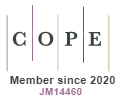Valentina, a princesa negra na literatura infantil: possibilidade de ampliação do contato com a cultura afro-brasileira aos leitores
DOI:
https://doi.org/10.5585/38.2021.20446Palavras-chave:
leitura literária, materialismo histórico-dialético, personagem negra, prática pedagógicaResumo
Este estudo analisa a obra Valentina, de Márcio Vassalo (2007). O objetivo foi apresentar a análise das múltiplas determinações desta obra, como contribuição cultural para uma prática pedagógica voltada à diversidade racial, visando o desenvolvimento da formação leitora, humana e social a partir da mediação com a leitura literária. A escolha da obra justifica-se pela riqueza da linguagem poética, o significado das ilustrações, a contemplação da personagem negra como protagonista e ampliação do contato com a temática afro-brasileira. Trata-se de uma abordagem crítico-dialética, qualitativa, com aproximações ao Materialismo Histórico-Dialético. Os dados foram gerados na pesquisa bibliográfica e em reflexões sobre saberes docentes. Como resultados, foi possível entender que quando a prática pedagógica com leitura literária é pautada pela compreensão dialética das múltiplas determinações contidas na obra, a leitura configura-se em uma práxis educativa que colabora com a ampliação cultural, cognitiva e social do sujeito leitor inserido no contexto escolar.
Downloads
Referências
CANDIDO, Antônio. Literatura e sociedade. 10. Ed. São Paulo: Ouro sobre Azul, 2006. Disponível em: https://joaocamillopenna.files.wordpress.com/2014/03/candido-literatura-e-sociedade-copy.pdf Acesso em: 28 jun. 2021.
CANDIDO, Antônio. O direito à literatura. In: Vários escritos: Ouro sobre Azul. 5. ed. Rio de Janeiro, 2011, p. 171-193. Disponível em: https://edisciplinas.usp.br/pluginfile.php/3327587/mod_resource/content/1/Candido%20O%20Direito%20%C3%A0%20Literatura.pdf Acesso em: 28 jun. 2021.
COELHO, Nelly Novaes. Literatura Infantil: Teoria, Análise, Didática. São Paulo: Moderna, 2000.
DEBUS, Eliane Santana Dias. Meninos e meninas negras na literatura infantil brasileira: (des)velando preconceitos. Perspectiva, Florianópolis, v. 28, n. 1, 191-210, jan./jun. 2010.
DEBUS, Eliane Santana Dias. A escravização africana na literatura infantil e juvenil: lendo dois títulos. Currículo sem Fronteiras, v. 12, n. 1, p. 141-156, jan./abr. 2012. Disponível em: www.curriculosemfronteiras.org. Acesso em: 14 dez. 2020.
DEBUS, Eliane Santana Dias. A temática da cultura africana e afro-brasileira na literatura infantil de Júlio Emílio Braz. In: COELHO, Nelly Novaes; CUNHA, Maria Zilda da; BASEIO, Maria Auxiliadora Fontana (Orgs.). Tecendo Literatura: entre vozes e olhares. SP, v. 1013.
GAMBOA, Sílvio Sánchez. Epistemologia da pesquisa em educação. Campinas: Praxis, 1998. Disponível em: http://www.geocities.ws/grupoepisteduc/arquivos/tesegamboa.pdf. Acesso em: 30 maio 2021.
GOUVEIA, Maria Cristina Soares de. Imagens do negro na literatura infantil brasileira: análise historiográfica. Educ. Pesquisa, v. 31, n. 1, p. 79-91, mar. 2005. Disponível em: https://doi.org/10.1590/S1517-97022005000100006. Acesso em: 9 out. 2020.
JOVINO, Ione da Silva. Literatura infanto-juvenil com personagens negros no Brasil. In: SOUZA, Florentina.; LIMA, Maria Nazaré (Org.). Literatura Afro-Brasileira. Salvador: Centro de estudos afro-orientais; Brasília: Fundação Cultural Palmares, 2006. p. 179-217.
JOVINO, Ione da Silva. Personagens negras na literatura infantil brasileira de 1980 a 2000: revisitando o tema. Reunião Anual ANPED, 2016.
LOBATO, José Bento Monteiro. O Sacy-Pererê – resultado de um inquérito. Rio de Janeiro: Edição fac-similar/Gráfica J. B. S/A, 1998.
LOPES, Naiane R. Programa Nacional Biblioteca da Escola (PNBE) 2010: personagens negros como protagonistas e a construção da identidade étnico-racial. 2012. 156 f. Dissertação (Mestrado) – Programa de Pós-Graduação em Educação da Faculdade de Filosofia e Ciências, Universidade Estadual Paulista Júlio de Mesquita, Campus Marília, São Paulo, 2012.
MARX, Karl. O Método da Economia Política. In: MARX, Karl. Contribuição à Crítica da Economia Política. 3.ed. São Paulo: Martins Fontes, 2003.
MARX, Karl. Manuscritos econômico-filosóficos e outros textos escolhidos. São Paulo: Abril Cultural, 1978.
REZENDE, Lucinea Aparecida de. FRANCO, Sandra Aparecida Pires e MARQUEZ, Letícia. Fotografia e leituras de mundo: arte e educação. Revista Discursos Fotográficos, Londrina, PR, v.9, n. 15, 2013. Disponível em https://www.researchgate.net/publication/296680400_Fotografia_e_leituras_de_mundo_arte_e_educacao Acesso em: 14 dez. 2020.
SAVIANI, Demerval. A pedagogia Histórico-crítica no quadro das tendências críticas da Educação Brasileira. In: SAVIANI, Demerval. Pedagogia histórico-crítica: primeiras aproximações. 9.ed. Campinas: Autores Associados, 2005. Capítulo 3.
SILVA, Luciana Cunha Lauria da; SILVA, Katia Gomes da. O negro na literatura infantojuvenil brasileira. Revista Thema, v.8, n. especial, 2011. Disponível em: http://periodicos.ifsul.edu.br/index.php/thema/article/view/106. Acesso em: 21 maio 2021.
VASSALO, Márcio. Valentina. São Paulo: Global, 2007.
VYGOTSKY, Levy. S. A pré-história da linguagem escrita.In: VYGOTSKY, L. S. A formação social da mente. São Paulo: Martins Fontes, 1995. p. 69-79.
VYGOTSKY, Levy. S. Pensamento e linguagem. São Paulo: Martins Fontes, 2005.
Downloads
Publicado
Como Citar
Edição
Seção
Licença
Copyright (c) 2021 Dialogia

Este trabalho está licenciado sob uma licença Creative Commons Attribution-NonCommercial-ShareAlike 4.0 International License.
- Resumo 587
- PDF 603








